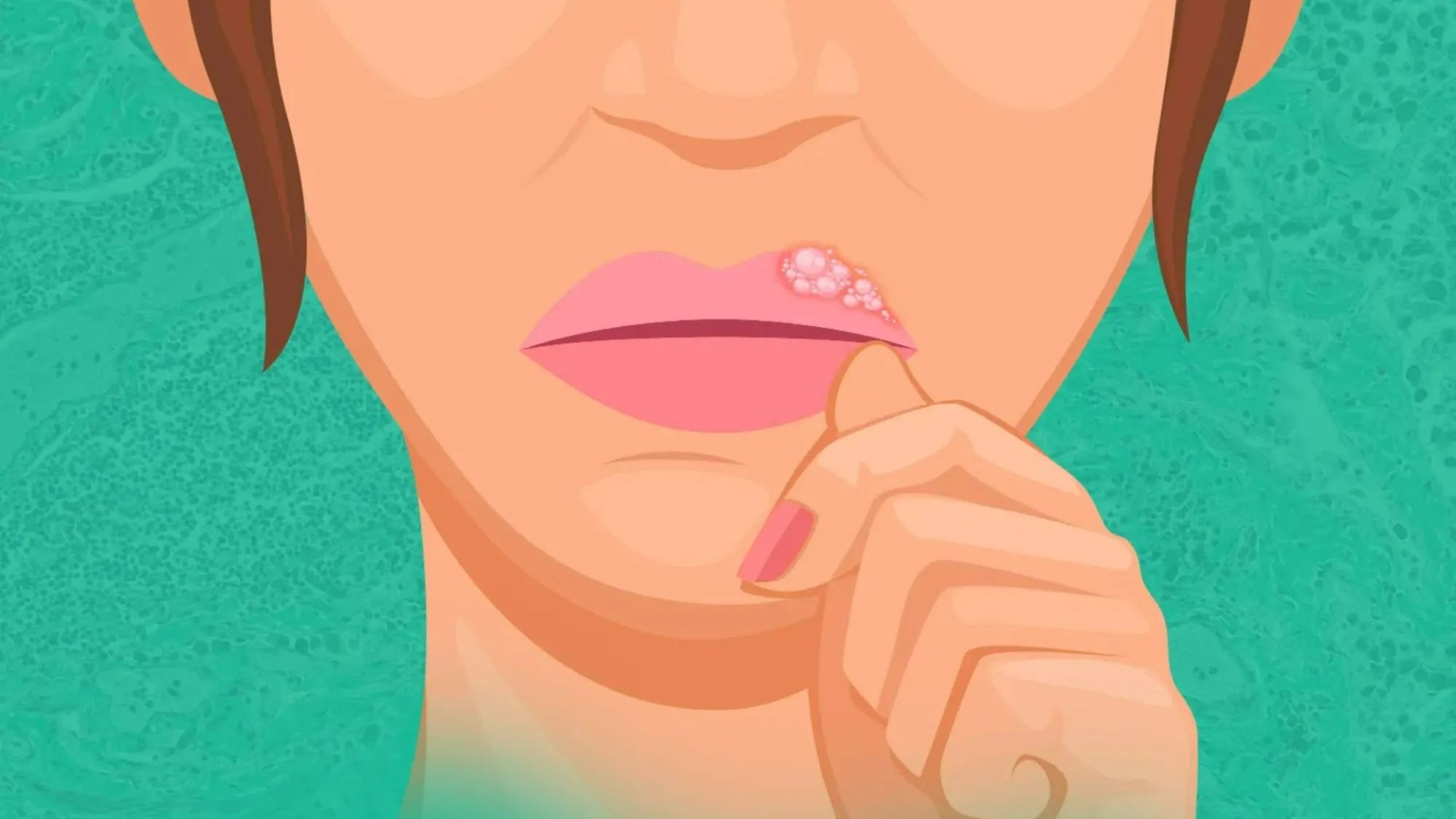THE herpes simplex virus type 1 is best known as the villain behind the dreaded cold sore.
When it’s not triggering eruptions of ugly crusty sores on the mouth, it takes refuge in the bundle of nerves that run through the face.
1
And it’s very common.
Roughly 70 per cent of Brits harbour lifelong infections of HSV-1 – largely without any nasty flair-ups – which are typically harmless.
However, in some cases, HSV-1 can do far more than stop people from wanting to kiss or share cups with you for a few weeks.
“Cold sores might seem like just a minor annoyance, but they can actually lead to some serious health issues,” Dr Anil Sharma, a medical doctor at Sharma Skin & Hair Surgery, tells The Sun.
“The virus that causes those blisters can spread to other parts of your body, potentially resulting in life-threatening infections.”
HSV-1 can also cause genital infections, though it’s herpes simplex virus type 2 that is more commonly associated with genital herpes.
Scientists have discovered the cold sore virus can infiltrate the brain and potentially lead to dementia.
A long-term study conducted in Sweden revealed a strong link between the virus and the brain-eating disease, including its most common variant, Alzheimer’s.
The research, published in the Journal of Alzheimer’s Disease, followed more than 1,000 participants for 15 years, 82 per cent of who carried HSV-1 antibodies.
Those with the virus were found to be twice as likely to develop dementia during the study.
But how else can this nasty infection potentially wreak havoc on the body?
It can cause encephalitis
In rare cases, HSV-1 can invade the brain, leading to a severe condition called herpes simplex encephalitis.
The condition, which causes the brain to swell, requires urgent medical treatment.
Other viruses, like chickenpox, measles and mumps can also trigger the viral disease.
According to the Encephalitis Society, there up to 6,000 cases of encephalitis in the UK each year.
When caused by a virus, initial symptoms of the illness are subtle and can easily be mistaken for other, less serious conditions.
How to protect yourself from cold sores
Here are Dr Anil Sharma’s top tips for preventing the spread of the herpes and reducing your risk of catching it
To lower your risk of these complications, it’s important to practice good hygiene, avoid touching your cold sore, and not share personal items.
If you have a weakened immune system — like if you’re undergoing chemotherapy or other immunosuppressive treatments — you should talk to your doctor about extra precautions you can take.
If you notice any worrying symptoms, such as increasing eye pain, changes in your vision, or severe neurological issues, don’t hesitate to seek medical help right away.
While most cold sores are mild, being aware of the potential risks and taking steps to protect your health is crucial.
It typically begins with flu-like symptoms, such as fever and headache.
But it can quickly progress to more severe neurological signs, including confusion, seizures, hallucinations, and even coma.
Without prompt treatment, HSE can be fatal or cause significant brain damage.
Even with treatment, some survivors of HSE may have lingering neurological effects, such as memory loss, personality changes, or difficulty with speech.
It can lead to blindness
HSV-1 can infect the eye and sometimes lead to blindness.
The virus infects the cornea, forming tree-like branching ulcers across the eye.
It can cause irritation, pain, sensitivity to light, and ultimately blindness if untreated, the NHS says.
Herpes in the eye is a leading cause of blindness in the world, according to the World Health Organisation (WHO).
The cornea, after all, is a transparent layer of tissue at the front of the eye, whose job is essentially to let in as much light as possible.
Infection can turn the cornea cloudy—permanently.
Common symptoms of a herpes simplex eye infection can include:
- A red eye
- Eye pain
- Swelling around the eye
- Sensitivity to bright light
- A watering eye
- Blurred vision
It can kill babies
HSV-1 in babies is rare and can be prevented.
If kissed by a person who has a cold sore, a young baby can become seriously ill with the virus, as their immune system has not fully developed to fight it off.
It can spread through their body fast, causing issues with their brain or other organs.
It is sometimes known as the “kiss of death” because of the way it is passed on.
Catching the virus early is the best way to ensure survival.
Common symptoms include:
- Irritability
- Blisters anywhere on her body
- Trouble breathing: grunting, rapid breathing, short periods of no breathing
- Jaundice
- Bleeding easily
- Blue appearance (cyanosis)
Life-threatening skin infections
For people with weakened immune systems, HSV-1 can cause complications far beyond skin symptoms.
The infection can more easily reach other parts of the body.
For example, it can reach the lungs and trigger pneumonia, or the liver where it can cause hepatitis – both of which can be life-threatening.




